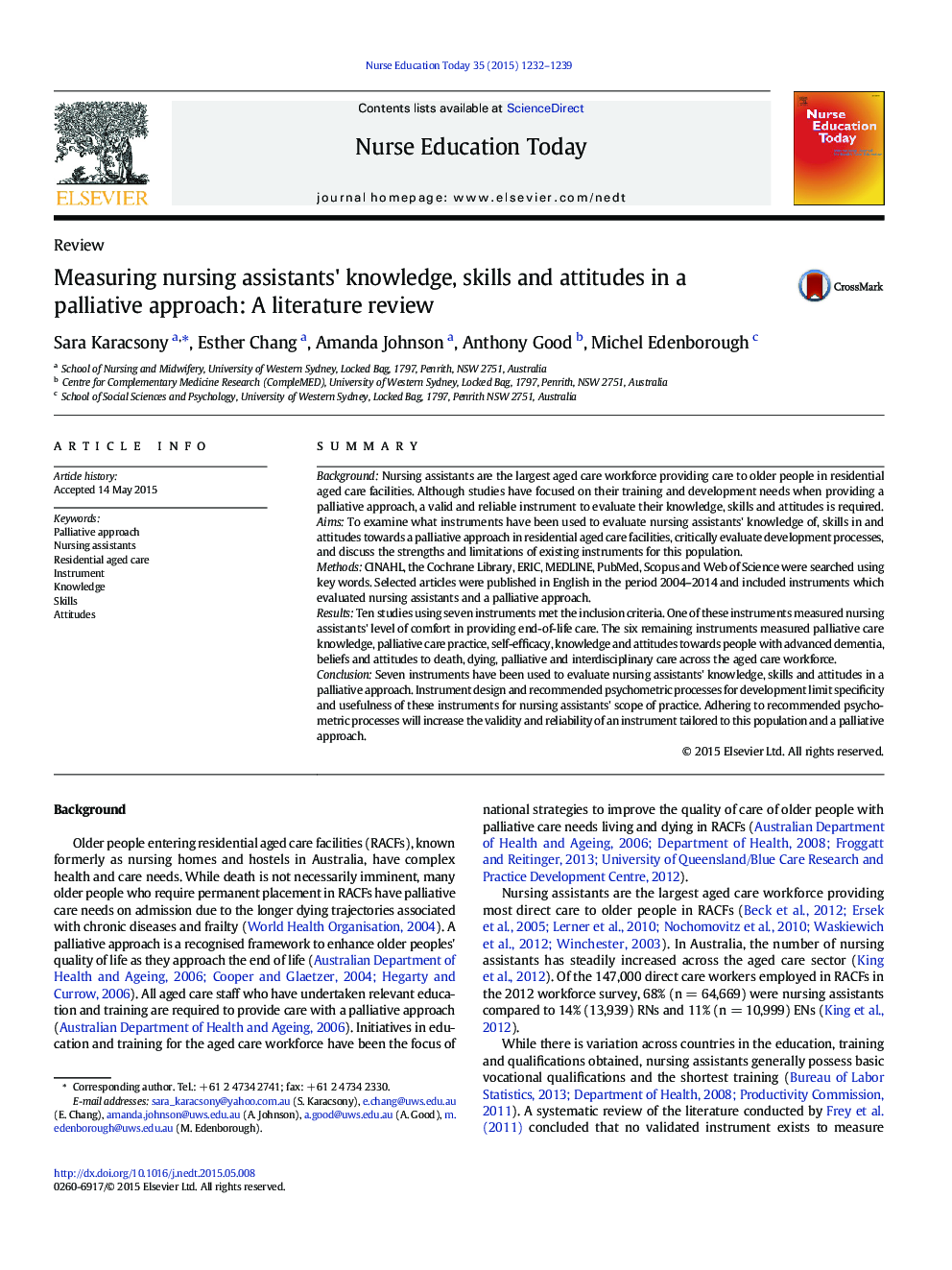| Article ID | Journal | Published Year | Pages | File Type |
|---|---|---|---|---|
| 367943 | Nurse Education Today | 2015 | 8 Pages |
SummaryBackgroundNursing assistants are the largest aged care workforce providing care to older people in residential aged care facilities. Although studies have focused on their training and development needs when providing a palliative approach, a valid and reliable instrument to evaluate their knowledge, skills and attitudes is required.AimsTo examine what instruments have been used to evaluate nursing assistants' knowledge of, skills in and attitudes towards a palliative approach in residential aged care facilities, critically evaluate development processes, and discuss the strengths and limitations of existing instruments for this population.MethodsCINAHL, the Cochrane Library, ERIC, MEDLINE, PubMed, Scopus and Web of Science were searched using key words. Selected articles were published in English in the period 2004–2014 and included instruments which evaluated nursing assistants and a palliative approach.ResultsTen studies using seven instruments met the inclusion criteria. One of these instruments measured nursing assistants' level of comfort in providing end-of-life care. The six remaining instruments measured palliative care knowledge, palliative care practice, self-efficacy, knowledge and attitudes towards people with advanced dementia, beliefs and attitudes to death, dying, palliative and interdisciplinary care across the aged care workforce.ConclusionSeven instruments have been used to evaluate nursing assistants' knowledge, skills and attitudes in a palliative approach. Instrument design and recommended psychometric processes for development limit specificity and usefulness of these instruments for nursing assistants' scope of practice. Adhering to recommended psychometric processes will increase the validity and reliability of an instrument tailored to this population and a palliative approach.
